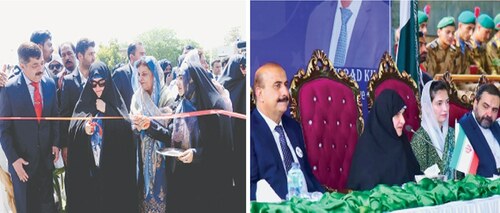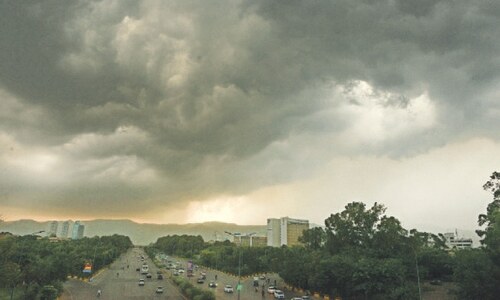There has been an increase in incidents of fights in government-run hospitals in Rawalpindi over the last few years with the patients blaming the attitude of doctors and hospital staff for the increased quarrels and doctors attributing shortage of facilities and increased working hours for the change in staff behaviour.
During the last month, 10 such incidents occurred at three government hospitals including Holy Family Hospital (HFH), Benazir Bhutto Hospital (BBH) and District Headquarters Hospital (DHQ).
A fight broke out in BBH on Oct 3 when doctors declared a girl dead when she was alive. Hafsa Bibi, 22, was brought to the hospital five days earlier, was suffering from high blood pressure was admitted into the Intensive Care Unit (ICU). Doctors at the ICU declared her dead and removed her from the ventilator and later, the patient’s mother had found a pulse.
Hafsa’s family protested against the doctors and fought with the hospital staff who were forced to leave the ICU.
In the same hospital on Oct 16, a fight between two parties from Sadiqabad had lead to the death of two people and had left four people including the hospital’s ward master injured.
After the incident, young doctors had suspended services in the emergency department and refused to check on patients without security. This in turn led to more clashes between doctors and patients.
Patients complained about doctor’s attitude and said they go to government hospitals for treatment and that due to the bad attitude of the staff, they go to private clinics and hospitals instead.
“Gone are the days when half of a patient’s suffering would end after being seen by a doctor. Nowadays, doctors treat patients like second class citizens and do not pay attention to the patient even during examinations,” said Mohammad Nasir, a patient at the DHQ Hospital. He said patient’s attendants had to run between the administration offices and wards, asking doctors and nurses to check on patients.
A patient at BBH, Mohammad Israr said that paramedical staff and doctors in government-run hospitals were uncooperative.
“The doctors are always in their on-call rooms and nurses talk among themselves in ward corners and the attendants have to repeatedly ask them to check on patients,” he said.
An attendant at HFH, Jamila Bibi said people have to go to the hospital with a reference to get treated.
“I asked a doctor in the gynae ward before I brought my sister to the hospital, so that the nurses will be more attentive,” she said.
When asked, Young Doctors’ Association Punjab Chairman Dr Haider Akhtar maintained that doctors do pay attention to their patients but also counted off three reasons for the clashes between doctors and patient’s attendants.
“Doctors in the emergency and outdoor patient departments work between 70 and 90 hours a week. Sometimes, the doctors do not get enough rest and they get only three or four hours of rest between shifts,” he said.
The second reason, he said, was a shortage of beds and equipment in government run hospitals.
“People blame doctors for not admitting their patient but they do not understand that we cannot accommodate a patient if not beds are available,” he said, The third reason, he said, was the lack of medicines and that fights happen between doctors and patient attendants when doctors ask them to buy medicines of conduct tests from elsewhere.
Talking to Dawn, BBH Medical Superintendent Dr Asif Qadir Mir said old dispensaries in wards and union councils should be revived so that the burden of patients on hospitals decreases, which will in turn decrease the number of fights between patients, attendants and doctors.
“Satellite clinics should be opened in all residential colonies so patients with fever, flu, sore throats and other minor ailments can be treated there instead of at larger hospitals,” he said.
He added that doctors’ working hours are long and usually remain on duty of 36 hours.
“Hospitals are planning to open patient counselling counters in each ward, where attendants will be briefed about the condition of the patient and inform them about the [standard operating procedure] of the hospital to avoid fights,” he said.
Published in Dawn, December 4th, 2016














































Dear visitor, the comments section is undergoing an overhaul and will return soon.